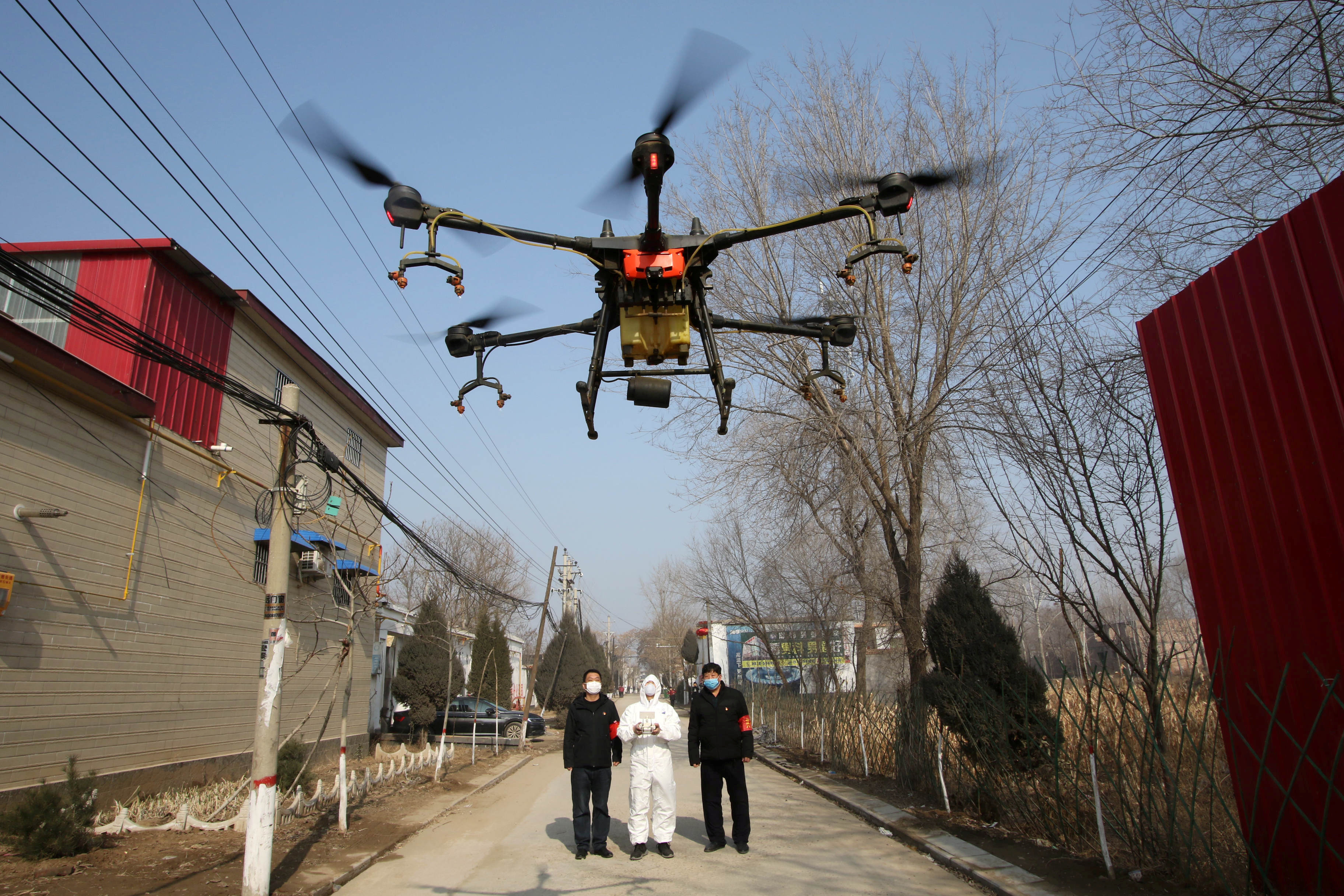You're being watched
In China, surveillance is both Orwellian and visible. Here, it's largely invisible.


A free daily email with the biggest news stories of the day – and the best features from TheWeek.com
You are now subscribed
Your newsletter sign-up was successful
This is the editor's letter in the current issue of The Week magazine.
The drone descended from the sky, its propellers whirring, and hovered over the head of an elderly Chinese woman. "Yes, Auntie, this drone is speaking to you," the voice of Authority said through a loudspeaker, as she looked up in concern. "You shouldn't walk around without wearing a mask. You'd better go back home." A video of this Orwellian encounter was put online by China's state media, evidently to boast of its use of drones and other technology to combat the spread of the new coronavirus. In another video, a drone zooms in on a group of people playing mah-jongg outdoors. "You've been spotted!" the loudspeaker admonishes. "Leave the site as soon as possible." To control the population, the government is also using facial recognition technology, robots, and the data it routinely gathers about who travels where and when. Those showing symptoms of illness are being hauled off to mass-quarantine facilities. It's chilling. It's dystopian. Americans would never put up with it. Would we?
The truth is that we're already far down this road. Facial recognition technology is exploding, with a company called Clearview AI compiling a mammoth database of faces from social media that it's selling to businesses and police agencies. The apps on your cellphone are tracking your movements in exquisite detail, and data brokers sell this information to private companies — and to Immigration and Customs Enforcement. Your online activity is tracked, compiled, and analyzed, creating an elaborate dossier of your interests, your political views, your buying habits, your sexual tastes. Our email addresses, Social Security numbers, phone numbers, and addresses are culled, stored, and sold — and sometimes hacked — without our knowledge or consent. Tech experts agree: We are "sleepwalking" toward a future without privacy or anonymity. There is no government drone barking orders over your head — not yet — but you are already under constant surveillance.
The Week
Escape your echo chamber. Get the facts behind the news, plus analysis from multiple perspectives.

Sign up for The Week's Free Newsletters
From our morning news briefing to a weekly Good News Newsletter, get the best of The Week delivered directly to your inbox.
From our morning news briefing to a weekly Good News Newsletter, get the best of The Week delivered directly to your inbox.
A free daily email with the biggest news stories of the day – and the best features from TheWeek.com
William Falk is editor-in-chief of The Week, and has held that role since the magazine's first issue in 2001. He has previously been a reporter, columnist, and editor at the Gannett Westchester Newspapers and at Newsday, where he was part of two reporting teams that won Pulitzer Prizes.
